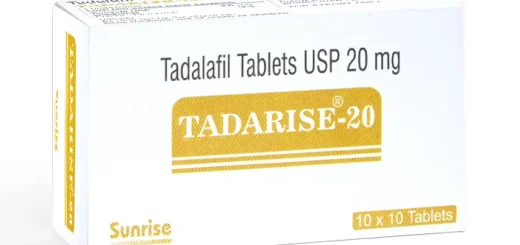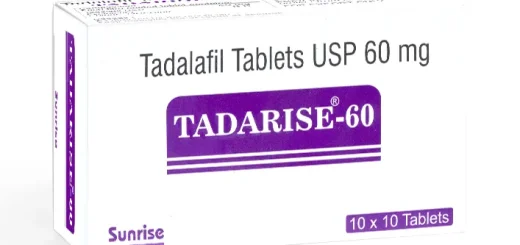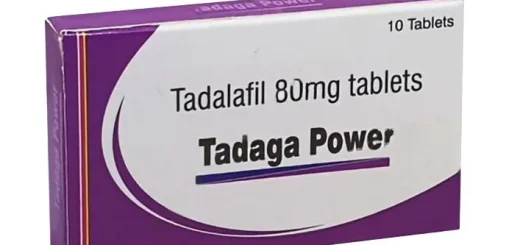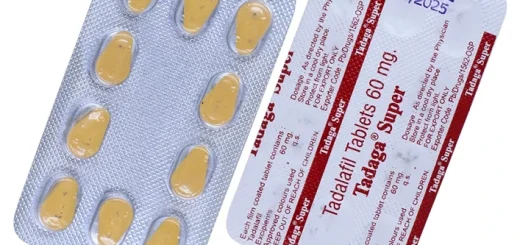What Peripheral Neuropathy Is And What Steps You Can Take To Feel Better About Yourself
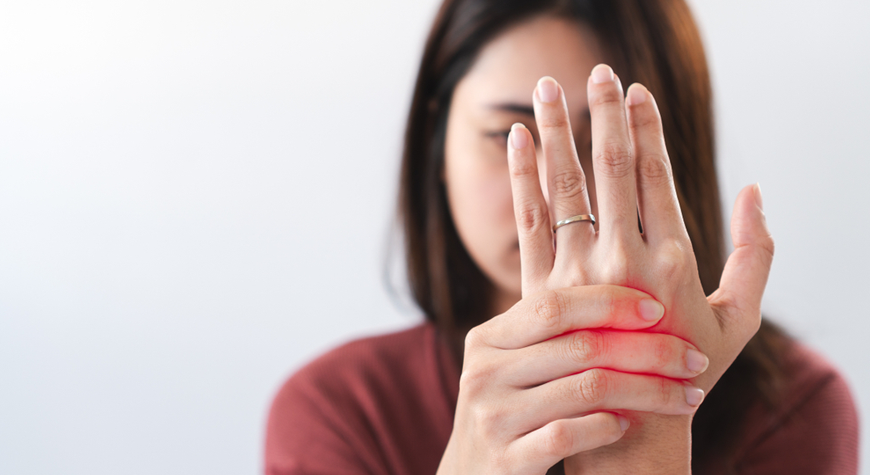
Nerve injury that occurs outside of the brain and spinal cord is known as peripheral neuropathy. This disease results from numbness, weakness, and pain in the limbs. Other than limbs, the disease also affects blood circulation, digestion of food, and the excretory system. The brain, spinal cord, and peripheral nerves are linked. The brain and spinal cord communicate with the body via peripheral nerves. This disease results from trauma, infection, metabolism, and diabetes. The pain sensation feels like someone is stabbing, burning, or tingling. If a treatable condition causes peripheral neuropathy, then symptoms may improve. It is possible for certain medications to lessen the pain caused by peripheral neuropathy.
Causes of peripheral neuropathy:
Various types of conditions may cause it. The conditions which can cause peripheral neuropathy are as follows:
Autoimmune diseases:
Sjogren’s syndrome, lupus, rheumatoid arthritis, and Guillain-Barre Syndrome are some of the autoimmune diseases which cause peripheral neuropathy.
Diabetes:
It is a common problem in people. Half of the people will suffer from peripheral neuropathy.
Infections:
Peripheral neuropathy can occur in Lyme disease, shingles, Epstein-Barr virus, hepatitis B and C, leprosy, diphtheria, and HIV.
Inherited disorders:
Charcot-Marie-tooth is a hereditary type of peripheral neuropathy.
Tumors:
On the nerves, either malignant or benign tumors can grow, which then puts pressure on the nerves. Polyneuropathy may also occur. All these above problems are degenerative disorders called Para neoplastic syndrome.
Bone marrow disorders:
Monoclonal gammopathies are blood protein abnormalities that can lead to myeloma, lymphoma, and amyloidosis.
Other diseases:
Kidney disease, hepatic disease, connective tissue disorder, and hypothyroidism.
Alcoholism:
If the person is addicted to alcohol and does not have a healthy diet, he will have a vitamin deficiency.
Exposure to poisons:
If the water you drink contains heavy metals, you may suffer from peripheral neuropathy. The chemicals are discard into the freshwater, which is potable water, and then you may get attacked by peripheral neuropathy.
Medicines:
Chemotherapy may lead to peripheral neuropathy. Chemotherapy is used in the treatment of cancer.
Injury or pressure on nerve:
Road accidents and falls from heights in sports can injure nerves. Pressure on the nerves will cause you to type many times, or you may have to use crutches.
Deficiency of vitamins:
Vitamin B complex, vitamin E, and niacin are vital for the nerves.
Symptoms of peripheral neuropathy:
In the human body, various kinds of nerves can be found in their various locations. Every nerve has a different function. The symptoms of peripheral neuropathy depend on the nerve affected. The nerves of the body are restricted as follows:
Sensory nerves:
The nerves which sense the changes in the climate or environment, such as temperature, pain, and vibration from the skin.
Motor nerves:
The nerves responsible for the movement of the muscles.
Autonomic nerves:
The nerves that are responsible for involuntary functions such as blood pressure, heart rate, digestion, and sweating. Involuntary action means which we cannot control.
Actual symptoms of peripheral neuropathy are as follows:
- Numbness, tingling, and prickling in the limbs
- Burning, throbbing pain
- Highly sensitive to touch
- Pain in the feet when standing normally
- Weak muscles
- Fall suddenly
- Feels like you are wearing socks or gloves
- Paralysis
Symptoms shown by the autonomic nerves:
- Can’t tolerate heat
- Sweating or unable to sweat
- Digestion problems
- Hypotension results in Dizziness
It has been observed that the majority of persons have polyneuropathy. If one nerve is damaged, then it is called mononeuropathy. If more than one nerve is damaged but in different body areas, it is called multiple mononeuropathies. Carpal tunnel syndrome is an example of a type of neuropathy known as mononeuropathy.
Diagnosis of peripheral neuropathy:
There are several different things that can bring on peripheral neuropathy. In addition to a physical examination, the attending physician will perform a few tests on the patient. If you use alcohol, the doctor will ask you questions about your medical history as well as your lifestyle. He will also ask you about your family history and if anyone suffers from any disease related to the nerves. The doctor will also check your muscles, posture, sensations, and reflexes. The doctor will conduct some tests which will help him diagnose the problem. The following are the examinations that are going to be carried out:
- Blood tests:
Detection of lack of vitamins, diabetes, immune functioning abnormally, and other situations which may cause peripheral neuropathy.
- Imaging tests:
Magnetic resonance imaging and CT scan check hernia, compressed nerves, tumors, blood vessels, and bones.
- Nerve function tests:
Electromyography (EMG) notes down the muscles’ electrical activity to find nerve damage. In EMG, electrodes are inserted in the muscle to detect electrical activity.
- Nerve biopsy:
A little portion of the nerve, primarily a sensory nerve, is removed by the clinician to check for any anomalies.
- Skin biopsy:
In order to check for any diminution in the nerve endings, the doctor removes a little portion of skin.
Treatment of peripheral neuropathy:
The goal is to treat the condition leading to neuropathy and reduce symptoms. The doctor will tell you to wait and watch if the neuropathy improves if the doctor does not find any underlying condition.
Medicines to treat peripheral neuropathy:
Medicines are to treat the conditions and to reduce signs and symptoms causing peripheral neuropathy.
Pain relievers:
OTC drugs such as NSAIDs will help to reduce pain. If you have extreme pain, then the doctor will give you painkillers. The doctor does not prescribe addicting drugs such as tramadol and oxycodone until other therapies fail.
Anti-seizure medicines:
The medicines which are used to treat epilepsy can help to reduce pain due to the nerves. Gabapentin and pregabalin are two examples of medications that are used to treat epilepsy. Side effects of these antiepileptic drugs are Dizziness and Drowsiness.

Topical treatments:
Capsaicin, a chemical found in hot chilies, shows improvement in neuropathy. There is a cream of capsaicin present in the market. You will feel a burning sensation and irritation when applying the capsaicin cream. As time passes, the burning sensation will get reduced. Lidocaine patches are available in the market, which you can apply to the skin for pain relief. Side effects of lidocaine patches are Numbness, Drowsiness, and Dizziness.
Antidepressants:
Amitriptyline and doxepin are tricyclic antidepressants. The chemical procedures in the brain and spinal cord which are responsible for pain are changed by these tricyclic antidepressants. Both duloxetine and desvenlafaxine are examples of SNRIs that can assist diabetic individuals in experiencing less discomfort. The side effects of antidepressants are as follows:
- Dry mouth
- Nausea
- Drowsiness
- Dizziness
- Change in hunger
- Constipation
- Increase in weight
ARMODAVINIL 200MG: Consult with Your Physician for Clarity.
Natural remedies to cure peripheral neuropathy:
- Capsaicin:
Active pharmaceutical ingredient found in chilies. It helps in reducing neuropathic pain. Scientists have finally found this chemical which helps in reducing pain. They have made a cream of capsaicin to treat neuropathy.
- Water aerobics:
Workout, which improves cardiovascular circulation without pressure on joints which might be painful.
- Acupuncture:
The signs and symptoms of peripheral neuropathy can be alleviated with the help of this method. According to research, it is confirmed that acupuncture shows pain relief. Tingling and Numbness are symptoms that are reduced by acupuncture. It shows an increase in the energy and balance of a person.
- Alpha lipoic acid:
It is a strong antioxidant that shows a reduction in pain. Broccoli, Brussels sprouts, sweet potatoes, and liver contain the antioxidant alpha lipoic acid. The veggie’s antioxidant is insufficient, so supplements are needed for pain relief.
- Exercise:
If you exercise regularly, then your muscle tone will improve and which in turn will reduce pain. Exercise will also fight other problems which cause neuropathy. Peripheral neuropathy in a diabetic patient will also get reduced if you exercise. Due to exercise, the blood sugar level will be in control.
- Changes in diet:
If you have diabetes, a slight change in your diet will reduce your blood sugar level. Change in blood sugar level will result in a reduction in symptoms of peripheral neuropathy. A person with diabetes should eat fiber-rich food and fewer carbohydrates to decrease sugar levels. The foods which a diabetic person should avoid are as follows: Pasta, sweets, and processed foods. A list of what to eat:
- Antioxidant-rich foods: Blueberries, walnuts, fatty fish, flaxseeds
- High in fiber foods: veggies, fruits, and nuts
- Low sodium intake: Less than 2300 mg per day
- Limit fats
- Stop alcohol consumption
- Stop smoking:
Smoking damages peripheral blood vessels.
- Vitamins:
Vitamins will help to reduce symptoms of peripheral neuropathy. Below is the list of vitamins:
- B-complex
- Vitamin E
- Acetyl-L-carnitine
- Alpha lipoic acid
- Omega-3 fatty acids
- N-acetylcysteine
- Magnesium and calcium
- Glutamine
- Relaxation techniques:
It will help a person manage pain. Breathing exercises and meditation will help in progressive relaxation. Yoga, tai-chi, and stretching will reduce stress, improve posture, and help reduce pain due to neuropathy.
- Another medicine:
Other methods that can help relieve pain include chiropractic adjustments and reiki treatments.






